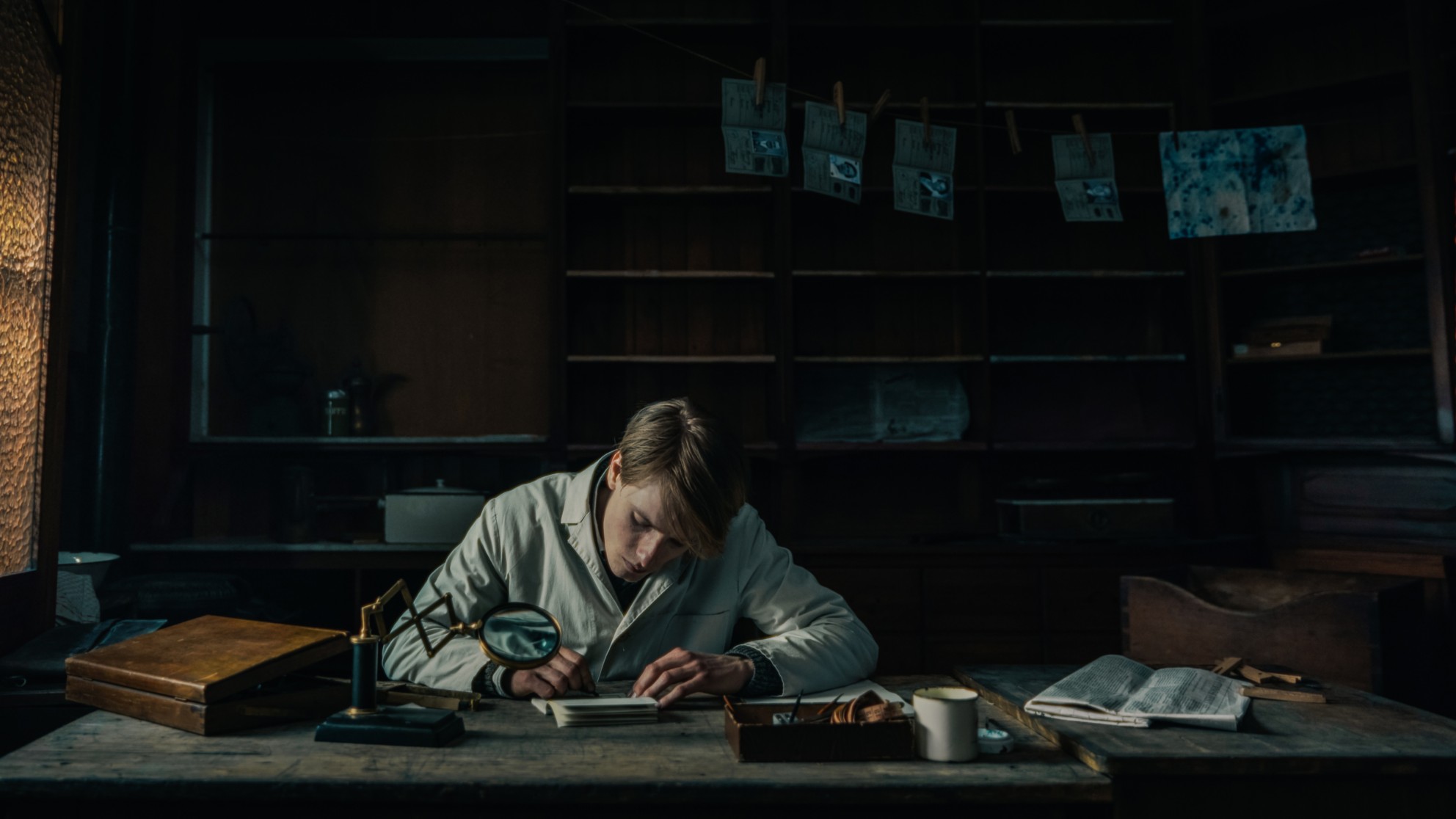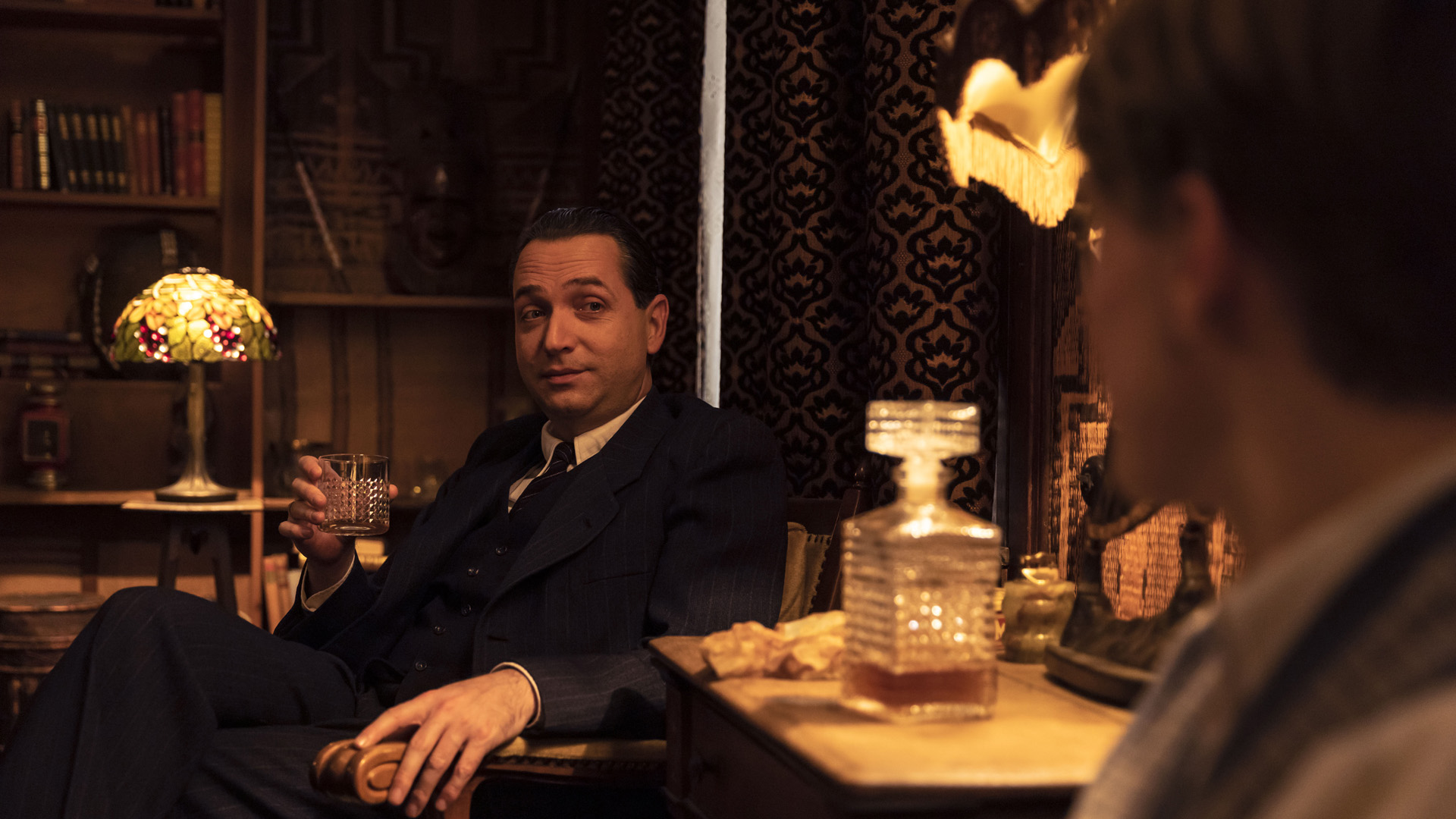‘The Forger’ is a German-language drama film that follows the exploits of Cioma Schönhaus, a young artist who wants to have fun and discover life while he’s still young. However, living it large is not really an option when you are a jew in Nazi Germany. In order to make his dreams a reality and experience life, Cioma starts to forge government ids and go all over Berlin. But soon he is swamped with requests from others in the Jewish community who are living in fear of persecution. Their only hope now is Cioma and the forgeries he can make.
Directed by Maggie Peren, the 2022 film stars the talents of Louis Hoffmann, Jonathan Berlin, Luna Wedler, Nina Gummich, Marc Limpach, and Andre Jung. Like most films that are set in World War II have a grain of truth to them. Therefore, one can’t help but question whether the same is true of ‘The Forger’ as well.
Cioma Schönhaus’ Autobiography: The Inspiration for The Forger’s Story
Yes, ‘The Forger’ is based on a true story. The screenplay was adapted for the film by director Maggie Peren from the eponymous autobiography written by the real-life Cioma Schönhaus. The book was first published in 2004 in German as ‘Der Passfälscher’ (‘The Passport Forger’), and then in English in 2008 as ‘The Forger.’ The film closely follows the account of Schönhaus’s life until his escape to Switzerland in 1943.

In his memoir, Samson “Cioma” Schönhaus mentions how he was born to Russian immigrants on September 28, 1922, in Berlin. Cioma was barely in his 20s when the Nazis took over the country and started rounding up every Jew in sight and hauling them off to concentration camps. The same fate befell Cioma’s family members as well, and he was bound to join them too, had it not been for his young age, which marked his as a fit worker.
So, he was sent off to a munitions factory instead in order to help build the Nazi war machine. Marked with such tragedy, Cioma still has hope and does what he can to get through the days – diving into bars and eating at posh restaurants using fake documents becomes a part of his life. The thrill of it keeps him going, and he helps other like him escape their dire circumstances as well with the help of a few like-minded individuals.
This optimism that one can glean from the book shines through in Louis Hoffmann’s portrayal of Cioma. In an interview with ‘The Hollywood Reporter,’ Hoffmann talks about how Cioma’s story is something that he hadn’t heard before and could not believe that a person so full of hope could exist in Nazi Germany. “…Someone who seems to shine, to have such a lightness about them, this cheekiness, this chutzpah…,” the actor said.
In a scene from the trailer, Franz Kaufmann (Marc Limpach) says to Cioma “Go on telling people what they want to hear. Just like Hitler has been doing for years.” This single line encompasses the crux of ‘The Forger’ and Cioma’s daring escapades throughout Berlin. His adventures are shown in the film through a very narrow perspective as well. Cioma never meets the people he’s helped, and there are no grand symbols or imagery to show the oppressiveness of the Nazi regime in the film either; instead, the focus is on everything from Cioma’s perspective and those immediately around him. This gives the story a more personal touch and allows for an in-depth exploration of the various characters involved instead.
“…Usually, in films about the Third Reich, you get the perspective from outside, the broad historic look. This film shows things from the inside, the microcosm of interpersonal relationships and everyday life. From that, you understand this world and the bigger picture,” Hoffmann continued.
The way that Cioma narrates his grim and harrowing experiences with a sense of levity and dry humor is also what attracted director Maggie Peren to bring his story to the big screen. “I decided to make the film after I met Cioma in November 2013. I couldn’t get his story and love of life out of my head after reading his book. I just called him up and took the train to Basel to meet him,” Peren said in a conversation with ‘The Times of Israel.’

The historical biopic also presents a unique aspect of people living in war-time, and especially under a totalitarian regime; their ability to use any and all forms of entertainment to act as a psychological defense against the horrors of war and the vice-like grip it has on resources that would be readily available otherwise. The real-life Cioma Schönhaus, unfortunately, passed away on September 22, 2015, merely six days away from his 93rd birthday. But his zest for life and ability to see the light in the darkest of circumstances will continue to live on through ‘The Forger.’
Read More: Best World War II Movies of All Time


You must be logged in to post a comment.